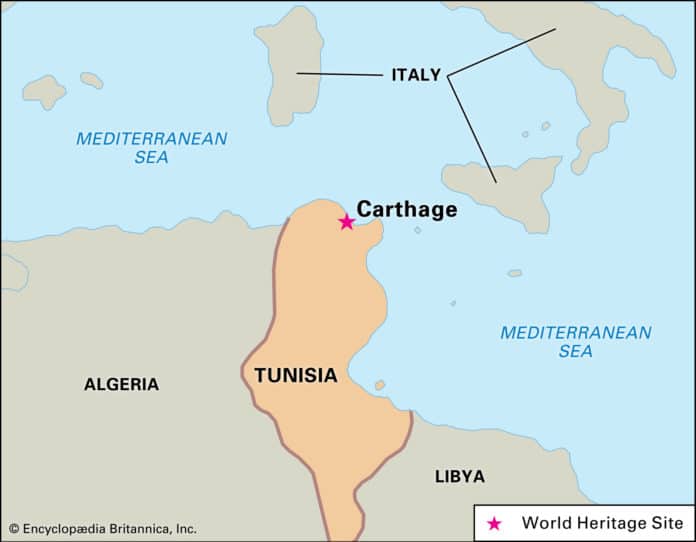A new genetic study published yesterday on the remains of Carthage in Tunisia rejects all claims of a historical Phoenician presence in North Africa, confirming that the Carthaginian civilization was merely a Phoenician cultural influence on the local autochthonous population in some coastal areas as a result of trade with the Phoenicians. Previous studies that looked at current DNA results also confirmed the absence of genetic continuity for the Phoenicians in North Africa today.
The new study, titled “A Genetic History of Continuity and Mobility in the Iron Age Central Mediterranean,” it was conducted by “Hannah M. Moots” of Stanford University, and supported by a team of 24 academics from various notable universities.
The team have sequenced the genomes of 30 ancient individuals from Carthaginian and Etruscan port cities across the central Mediterranean, including Tunisia, Sardinia, and central Italy.
The findings indicate that the genetic makeup of Kerkouane, a Carthaginian town on the Cap Bon peninsula in Tunisia, was heavily influenced by autochthonous North African Amazigh people. And the use of terms like “Western Phoenicians” and, to a lesser extent, “Punic” in the literature to refer to Carthaginians obscures the contribution of autochthonous North African populations in Carthaginian history, as it implies a primarily colonial population and minimizes indigenous involvement in the Carthaginian Empire. As a result, studies of Carthage and its empire have generally ignored the contribution of autochthonous Amazigh communities.
The paper also confirmed that both Near Eastern and Sub-Saharan African components were present in North Africa earlier than previously thought, demonstrating North Africa’s millennia-long connectivity with these regions. The sub-Saharan ancestry at Kerkouane could be the result of direct or indirect interaction with the Sahara’s nomadic tribes. These nomadic nomads, identified as Numidians by the Greeks, are regarded to be the forefathers of today’s Amazigh populations in North Africa since the Bronze Age.


















The study did not use the word “Amazigh” or “Berber” though. How do you explain that?